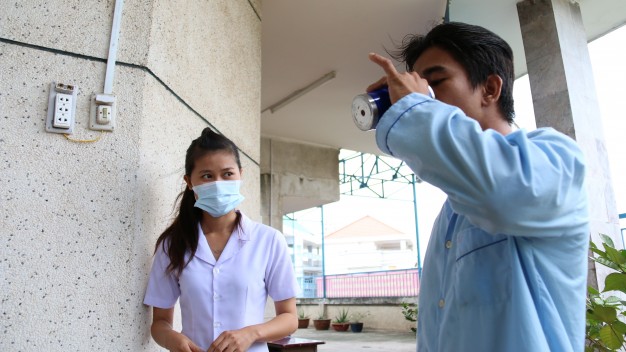Drug detoxification is in a dilemma in Vietnam as the compulsory form is now considered a violation of human rights while the voluntary mode has proved ineffective.
After 18 months of carrying out a pilot program for voluntary drug detoxification in Ho Chi Minh City, the organizers admitted Friday in a meeting to review the new model that it was not effective during the period.
Previously, drug detoxification in the Southeast Asian country was compulsory and it was administered by local policemen.
But the obligatory model had to fold last year after the law-making National Assembly ruled it to be violating human rights.
Addicts forced to join voluntary detoxification
The pilot program, ‘Community-Based Drug Detoxification,’ was carried out by the center for drug detoxification and consulting under the Ho Chi Minh City Department of Labor, War Invalids, and Social Affairs.
The center is the first to have applied the voluntary model to drug detoxification in Vietnam. It is labeled ‘community’ because addicts were not forced to stay in isolated rooms but allowed to return home at their will during the 18-month period.
In addition, drug addicts were permitted to choose to be involved in the program for detoxification within 15 days, three months, or longer, depending on their decision.
During the 18 months, the center received 563 addicts coming to learn about the program but only 204 of them registered for treatment. And only six of those agreeing to join, or 2.8 percent, completed their voluntary program.
The remainder dropped out midway although 44.3 percent of the addicts had opted for the shortest period of 15 days of treatment.
Most of those dropouts were not determined enough to follow their detoxifying regime until the end.
The majority of them partook in the program under the pressure of their families or local authorities, according to a report the center released at the Friday meeting.
In many cases, the addicts’ mentality was not stable and they acted in gangster manners. The addicts even did not display any cooperation for treatment in the presence of consultants and nurses.
Nguyen Van Minh, vice director of the social affairs department, said drug addicts who come to the center under the influence of their families or authorities will not be admitted for treatment because it goes against the voluntary spirit.
If there is anything against the addicts’ will, that turns out to be the old compulsory model, Minh added.
Another reason leading to the failure of the program’s voluntary model was the lack of post-treatment care, according to the official.
Upon finishing their detoxification, the drug addicts should have received support to find a stable job or been sent to a vocational training center to start a new life and thus abandon their old habit.
Those who have completed their detoxifying regime may use drugs again if they remain unemployed and keep regular contact with other addicts, said Nguyen Xuan Lap, head of the agency for the prevention of social evils under the Ministry of Labor, War Invalids, and Social Affairs.
27-30 percent of drug addicts are lawbreakers
A recent surveys show that Vietnam has around 204,000 drug addicts now and 27 to 30 percent of them are lawbreakers.
Notably, 67 percent of the drug addicts are in working age.
In the past, local police were allowed to send drug addicts to a state-owned rehabilitation center for compulsory detoxification. However, the practice was already abolished as it is regarded as a form of human rights infringement.
Now, compulsory drug rehabilitation programs do exist but they can only admit an addict if there is an order from a district-level court.
No addict has been sent to a compulsory drug detoxification facility by a court in the past year.
Court officials said they are too busy with normal trials to have any more time for such an order.
| The center for drug detoxification and consulting under the Ho Chi Minh City Department of Labor, War Invalids, and Social Affairs is expected to offer voluntary treatment for 700 addicts from 2012 to 2015. The cost of treatment varies from VND3.7 million to VND5.3 million (US$178-255) per course, lasting from 15 days to three months or even longer. |
Like us on Facebook or follow us on Twitter to get the latest news about Vietnam!




















































